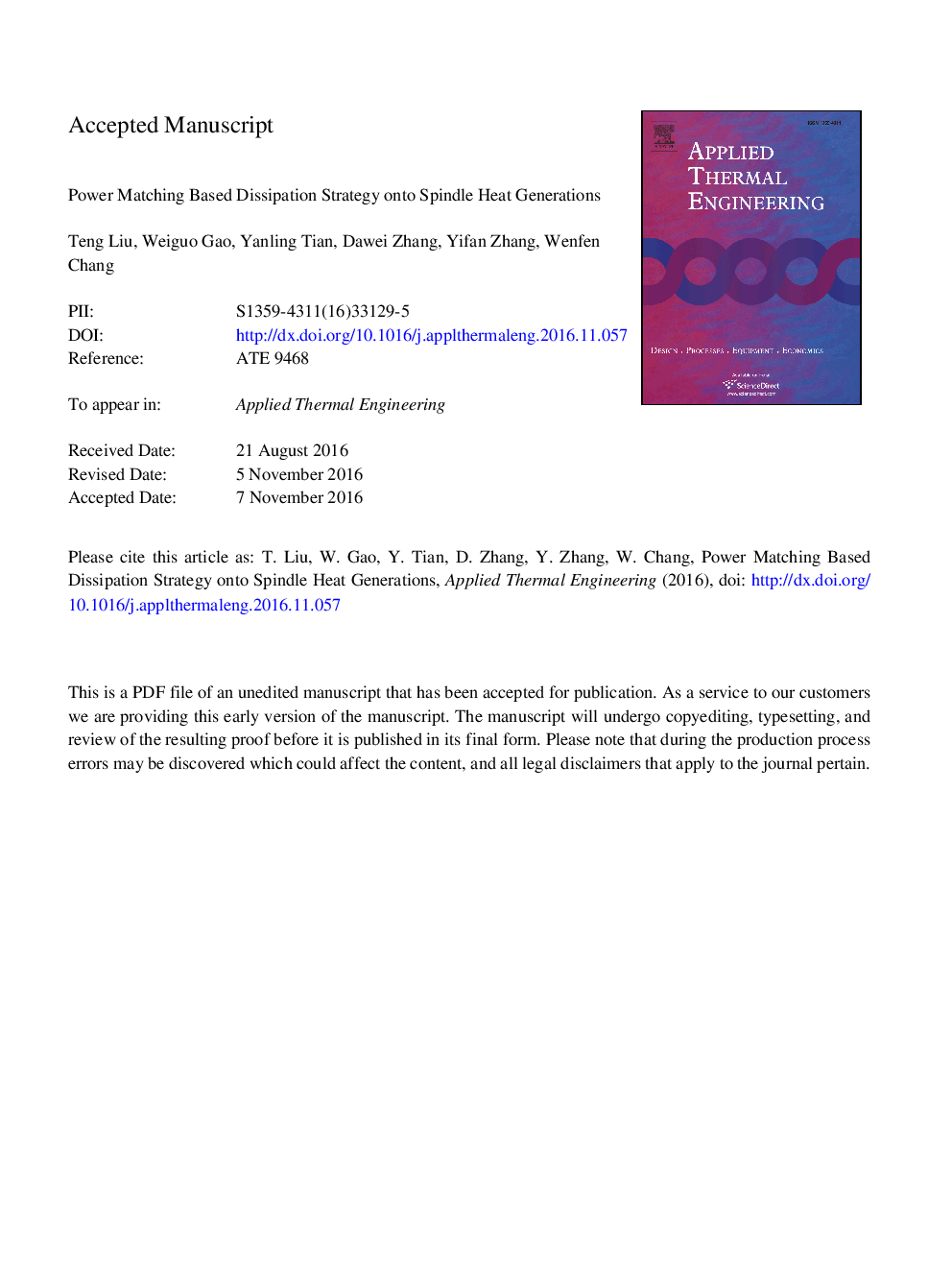| Article ID | Journal | Published Year | Pages | File Type |
|---|---|---|---|---|
| 4991824 | Applied Thermal Engineering | 2017 | 24 Pages |
Abstract
To overcome the imbalance between spindle heat generation and dissipation caused by existed spindle cooling strategies, this paper develops a power matching based cooling strategy for motorized spindle unit. Firstly, heat generation, conduction and dissipation are considered for the modeling of spindle structural heat exchange. This modeling methodology conveys that an operating motorized spindle unit will have satisfactory thermal behaviors only if the supply dissipation powers from recirculation coolants are dynamically and respectively equal to their corresponding heat generation powers (mainly from spindle bearings and motor). Based on this principle, the power matching between spindle heat generations and dissipations is realized by the real-time power estimations of spindle heat sources and the modified constant supply cooling powers strategy. It can be ultimately verified by experiments that the power matching based dissipation strategy is more advantageous than existed spindle cooling strategies in dissipation of spindle heat generations and decrease of thermal errors.
Related Topics
Physical Sciences and Engineering
Chemical Engineering
Fluid Flow and Transfer Processes
Authors
Teng Liu, Weiguo Gao, Yanling Tian, Dawei Zhang, Yifan Zhang, Wenfen Chang,
